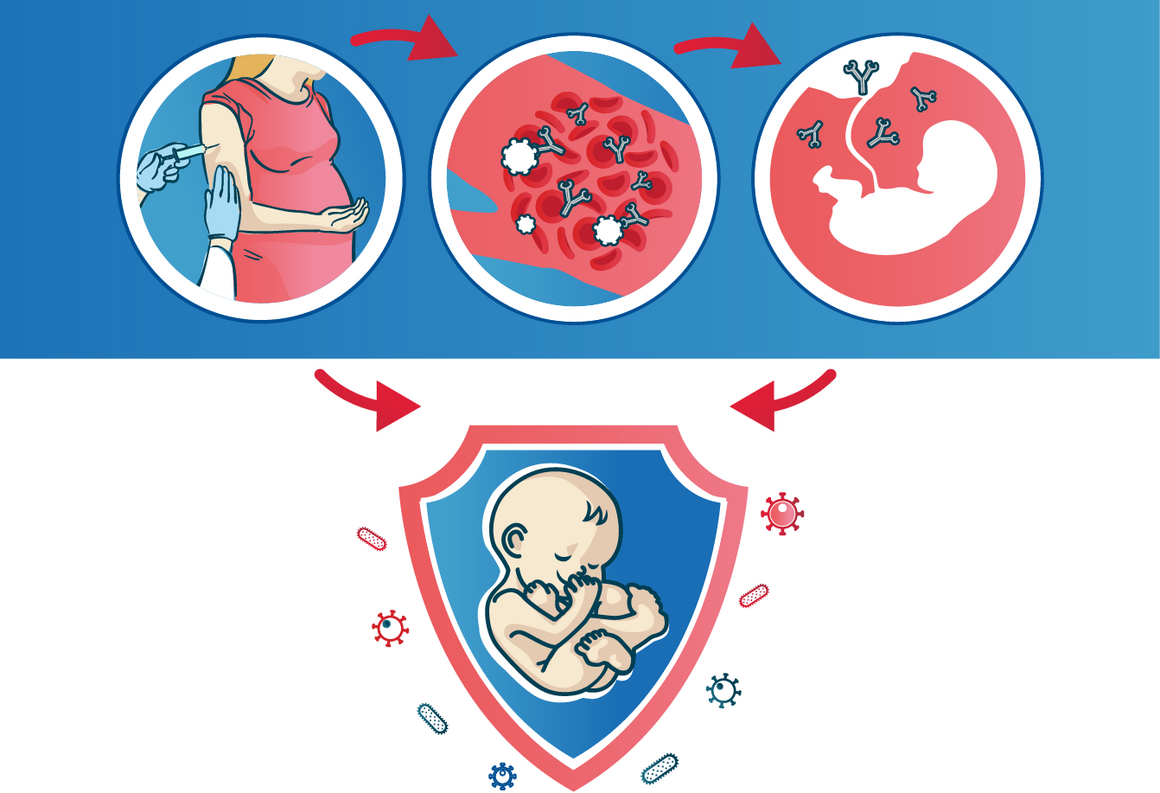Vaccination during pregnancy

Vaccinating a pregnant person protects them from potentially severe disease and complications during their pregnancy and can also extend that protection to a newborn after birth. This is called maternal vaccination, and helps protect the newborn until they can receive vaccinations themselves.
People who are pregnant should consult their national vaccination schedule and speak to a doctor about vaccines to ensure they benefit from optimal protection.
Maternal vaccination helps protect newborns from infections, some of which are especially dangerous for newborns, such as whooping cough (pertussis) and respiratory syncytial virus (RSV).
Whooping cough
Whooping cough, also known as pertussis, is a highly infectious bacterial disease of the lungs and airways. It can be serious in people of any age but in unvaccinated infants or infants whose biological mother was unvaccinated recently or during pregnancy it can be particularly severe. Complications include pneumonia, encephalopathy (a disease of the brain), seizures and even death.
Almost all deaths from whooping cough recorded in Europe are in infants younger than three months.
When a person gets vaccinated against whooping cough during pregnancy, their body creates protective antibodies against the disease. These antibodies then also pass on to the unborn baby. This helps protect them from whooping cough immediately after birth until the baby is old enough to be vaccinated.
Whooping cough (pertussis)
Key facts on whooping cough (pertussis), symptoms, complications, risk factors, how it spreads, prevention, and treatment.
Respiratory syncytial virus (RSV)
Respiratory syncytial virus (RSV) is a common respiratory virus that causes mild, cold-like symptoms. However, in infants under six months of age, RSV can cause severe illness and death. Almost all children will be infected with RSV by the time they are two years old.
When a person gets vaccinated against RSV during pregnancy, the antibodies generated in response to the vaccine cross the placenta to the unborn baby, protecting the baby for up to six months following birth.
RSV
Key facts on RSV symptoms, complications, risk factors, how it spreads, prevention, vaccination and treatment.
Influenza (flu)
People who are pregnant are at increased risk of severe disease and hospitalisation due to respiratory illness during flu seasons. Vaccination against the flu protects not only them, but can also help protect the newborn baby from flu-related complications for up to six months after birth.
Influenza
Key facts on Influenza, symptoms, complications, risk factors, how it spreads, prevention, and treatment.
COVID-19
People who are pregnant are more likely to develop severe disease and complications as a result of COVID-19. This means their unborn baby could also be at risk. Vaccination against COVID-19 helps to protect the parent against severe disease. People who plan to become pregnant should ensure they are up to date with their COVID-19 vaccinations, in line with national recommendations. People can still be vaccinated against COVID-19 during pregnancy.
COVID-19
Key facts on COVID-19, symptoms, complications, long-term COVID-19, how it spreads, and risk factors.
New and expecting parents
Find out how vaccines can protect both parents and their babies before, during and after pregnancy.
